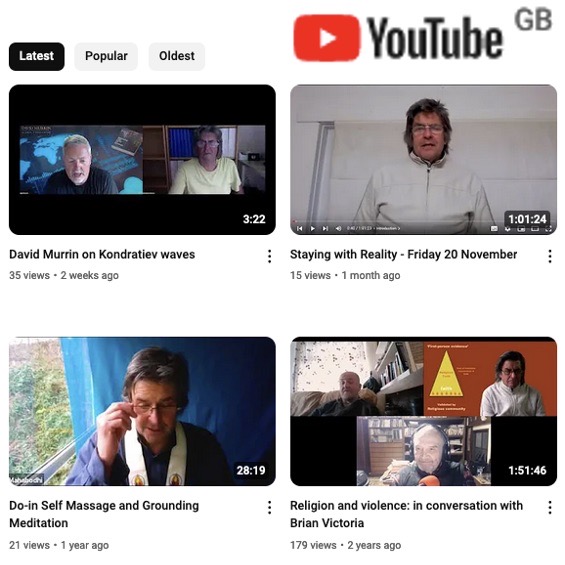Woke as Maoism with American characteristics
Below is an excerpt from my forthcoming book… © Mahabodhi Burton 7 minute read This excerpt is from Chapter 4: ‘Postmodernism and the academic mindset’ and follows on from Ideas without a Ground. James Lindsay European Parliament talk James Lindsay, author of Cynical Theories and Race Marxism– recently gave a talk at the European Parliament on Woke Ideology, which Jake from Rattlesnake TV comments on in his YouTube video James Lindsay SHATTERS Woke Ideology: EU Parliament Speech.[1] Lindsay’s thesis is as follows: He says Woke is supposed to advance equity in Europe, and he presents the definition of equity written by a man named George Frederickson: ‘an administered political economy in which shares are adjusted so that citizens are made equal’[2] and asks if it sounds like a definition of anything else we’ve ever heard of, like socialism. ‘They’re going to administer an economy to make shares equal.’[3] ‘The only difference between equity and socialism is the type of property that they redistribute, the type of shares they’re going to redistribute, social and cultural capital in addition to economic and material capital and so this is my thesis: when we say what is woke, woke is Maoism with American characteristics. If I might borrow from Mao himself, who said to his philosophy was Marxism Leninism with Chinese characteristics, which means woke is Marxism and it’s a very provocative statement. It’s something you will certainly hear. It is not that it is different, and the professors and the philosophers will spend a large amount of time explaining to you why no, no, it’s about economics when it’s Marxism.’[4] Lindsay claims that Woke is no different from Marxism: he says that when we study animals we classify them at different levels: the cat is at the level of genus, but within that genus are all the different species of cat: lions, tigers, leopards and so on, suggesting that: ‘If we think of Marxism as a genus of ideological thought, the classical economic Marxism is a species, radical feminism is a species in this same genus, critical race theory is a genus, or sorry, a species in this genus. Queer theory is a species in this genus, postcolonial theory that’s plaguing Europe is a species in this genus, and they have something that binds them together called intersectionality, that makes them treat it as if they are all one thing, but the logic is Marxist.’[5] Jake provides context: ‘Karl Marx was a 19th century philosopher who wrote The Communist Manifesto and Das Capital and his work obviously inspired the revolutions led by Vladimir Lenin, Chairman Mao, Pol Pot and more. …’ ‘… the idea of...
Black Lives Matter
Below is an excerpt from my forthcoming book… © Mahabodhi Burton 15 minute read This excerpt is taken from the chapter ‘The Woke Mind Virus‘ and follows on from The Woke Mind Virus post. The origin story of Black Lives Matter (BLM) The term ‘Woke’ came into common usage around the middle of President Obama’s second term, circa 2014. Within the black community it originally signalled, ‘to stay alive to sensitive social issues, including racism.’ However, after the shooting of Michael Brown,[1] an African American teenager by a police officer in Ferguson, Missouri that year, the term came to be popularized by BLM activists seeking to raise awareness about police shootings of African-Americans.[2] Since that date, similar incidents have continued to occur, in what Michael Mascarenhas, speaking in 2022, puts down to ‘environmental racism:’ ‘The fatal encounters of George Floyd, Ahmaud Arbery, and Trevyon Martin, to mention only three of the thousands of deaths of people of colour at the hands of White people each year is a form of environmental racism. Their crime was being in the wrong place at the wrong time. The death of Treyvon Martin was in part normalized because a Black teenage boy was walking in a White gated neighbourhood. Before fatally shooting the Black teenager, White neighbourhood watch captain George Zimmerman called 911 and reported a suspicious person in the neighbourhood. Similarly, Eric Garner was simply standing in front of a beauty supply store on Bay Street in Tompkinsville, Staten Island, when he was approached by New York Police Department police officers and strangled to death. Similarly, the deaths of Michael Brown in Ferguson, Missouri; Walter Scott in North Charleston, South Carolina; Freddie Gray in Baltimore, Maryland; and Philando Castile in Falcon Heights, Minnesota, represent just a few more tragic examples of over policing in Black and Brown communities. When found in White spaces, the colour of one’s skin is a key determinant of their experience. The Amy Cooper incident, where a White woman who called the police on Christian Cooper, a Black man, in Central Park, New York, after he asked her to leash her dog is one of the most recent striking examples of this form of environmental racism. Moreover, in most of these fatal cases–the coroner ruled Eric Garner’s death a homicide– predominantly White juries failed to bring charges against the White offenders. In fact, one of the potential jurors in the Treyvon Martin case said: “This could have been prevented had he not been up here,” had this Black youth not been in this White neighbourhood.’[3] After the Ferguson shooting BLM transitioned from...
The Five Paths as cumulative
Below is an excerpt from my forthcoming book… © Mahabodhi Burton 5 minute read This excerpt is taken from the chapter ‘Kindness front and centre‘ and follows on from Remembering Loving Kindness. The Five Paths as cumulative The simplest formulation of the Buddhist path is the Threefold Way, consisting of Ethics, Meditation and Wisdom. We try to be ethical by following Buddhist precepts in our daily life, for instance by being kind, generous, content, truthful and mindful. To intensify this practice, we then meditate. When we practice samatha meditations—such as the mindfulness of breathing and the metta bhavana—we cultivate skilful mental states that lead us into dhyana, where our mind and emotions are both highly skilful and have been made ready to take in reality; thus, dhyana provides the conditions for developing wisdom. Mindfulness as a foundation Let’s now look more closely at the Five Paths and how they might be cumulative, correlating with the Threefold Way. As we saw, the Five Paths seem to literally build upon the Satipatthana Sutta because the four foundations of mindfulness are the first element of the Path of Accumulation. The four bases of success When we start to make progress with the four foundations of mindfulness, we attain to the four bases of success; states of samadhi that are naturally associated with each foundation, namely: Mindfulness of body; our desire or intention (chanda) becomes more integrated and focused[1] Mindfulness of feeling; our skilful vigour / ethical robustness (viriya) becomes well established Mindfulness of mind; our mind (citta) becomes firmly established in the skilful Mindfulness of views; our investigation (vimamsa) of views is deep and thorough Mindfulness as a spiritual faculty These states of samadhi form the basis for the cultivation–as we transition to the Path of Preparation—of the five spiritual faculties, both of which naturally correlate with the cultivation of the four foundations of mindfulness,[2] and with the Threefold Way. It is logical to assume that: The spiritual faculty of Meditative Concentration will be developed through practising mindfulness of body[3] The spiritual faculty of Ethical Robustness – and ethical practice – will be developed through practising mindfulness of feeling[4] The spiritual faculty of Confidence – and meditation practice – will be developed through practising mindfulness of mind[5] The spiritual faculty of Wisdom will be developed through practising mindfulness of views[6] We can see this correlation in the following diagram and table: The fullsome development of the ‘Spiritual Personality’ Mindfulness as a spiritual faculty addresses two needs at this stage: the need for an increasing focus on the Three Jewels,...
Taking Offence
Below is an excerpt from my forthcoming book… © Mahabodhi Burton 2 minute read This excerpt is taken from the chapter ‘The Woke Mind Virus’ and follows on from the Woke Mind Virus. An accelerating trend in taking offence In his book Woke Racism, John McWhorter shares how in 2008, Christian Lander joked in Stuff White People Like that being offended was something a certain brand of white people enjoyed, alongside attending film festivals and wearing vintage T-shirts. He says that today, such a person hearing that joke would likely: ‘launch into a hissing tirade about how there is nothing funny about people trying to dismantle the prevalence of white supremacy and all whites’ “complicitness” in it. If he were to write that book today, Lander would be unlikely to include that joke, which is an indication of the extent to which there is something in the air that we hadn’t seen until quite recently.’[1] He says a critical mass of white liberals no longer quietly pride themselves in knowing they need to be offended about certain things, ‘but now see it as a duty to excoriate and shun those (including black people) who don’t share their degree of offence. To some, all of that may sound like mere matters of manner and texture.’[2] Third Wave Antiracism, McWhorter claims, harms black people ‘in the name of its guiding impulses:’ by insisting that racism is in play when black boys are overrepresented among those suspended or expelled from schools for violence, a practice which not only leads to such violence persisting but a declining skillset among the young black population. And white liberals are complicit in this affair. The high priests of Woke today: Joel Kotkin’s Clerisy (See Chapter 3,) tell us just how we should speak and think. Religion though, McWhorter contends, has a place neither in the classroom, nor in the elite university, nor in our codes of ethics, nor in delineating how members of society express themselves, and ‘almost all of us spontaneously understand that and see any misunderstanding of the premise as backward.’[3] ‘Yet, since about 2015, a peculiar contingent is slowly headlocking us into making an exception, supposing that this particular new religion is so incontestably correct, so gorgeously surpassing millennia of brilliant philosophers’ attempts to identify the ultimate morality, that we can only bow down in humble acquiescence.’[4] The liberal middle-classes are often fully unaware of just what they are doing: ‘Question these people for real and they howl as if having a finger pulled backward. But it isn’t that they don’t want their power taken away: The Elect see themselves as speaking truth...
The Woke Mind Virus
Below is an excerpt from my forthcoming book… © Mahabodhi Burton 11 minute read The chapter ‘The Woke Mind Virus’ commences with this excerpt. Woke: an update Since I first published this material in late 2022, there has been a significant shift in the political landscape. While the influence of Woke ideology continues to permeate culture, there are indications that its extremes are reaching a peak. Fueled by the confinement of the pandemic and the collective hypnosis observed in mass formation, various commentators have pinpointed this phenomenon, with Elon Musk notably among them. Employing a technological metaphor, Musk has referred to it as ‘the woke mind-virus,’ a precise characterization. This virus attaches itself to and proliferates within the ‘compassion centre’ of the mind, as previously mentioned by James Lindsay in Chapter 4. ‘[Marxism has] evolved into different species to attack the West at its weakest points, through our tolerance, through our acceptance, through our openness, through our generosity, through our best traits, actually the things that we should be proud of, being the things that we are proud of being.’ Previously, I titled this chapter ‘Woke as Old Testament Religion’ because the virus also targets and proliferates within another core aspect of the psyche: the ‘fear centre.’ This region corresponds to the reptilian part of the brain, which oversees fundamental instincts related to self-preservation.[1] Asked by Bill Maher[2] why he talks of the ‘woke mind virus’ as pushing civilization towards suicide, Musk says, ‘I think we need to be very cautious about anything that is anti-meritocratic and anything that results in the suppression of free speech. Those are the two aspects of the woke mind virus that I think are very dangerous … you can’t question things … even the questioning is bad.’[3] Approaching Musk’s political beliefs, Maher suggests he doesn’t think of Musk as a conservative, Musk says, ‘I at least think of myself as a moderate … I’ve spent a massive amount of my life building sustainable energy: electric vehicles and batteries and solar and stuff, to help save the environment. … That’s not exactly far right.’[4] Maher refers to a stick-man diagram Musk shared on X / Twitter in 2023, showing how the world had changed: in 2008 Musk saw himself as ‘Left of Centre;’ but then in 2012, Musk’s fellow liberal begins running in a Left-ward direction. In comparison Musk’s position appears closer to the Centre; by the time we reach 2021, Musk’s fellow liberal is now a Far Left woke progressive and, the Centre point having moved further Left with him, Musk now finds himself on...








 Users Today : 40
Users Today : 40 Users Yesterday : 23
Users Yesterday : 23 This Month : 498
This Month : 498 Total Users : 13925
Total Users : 13925
